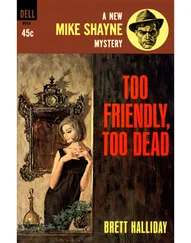Dan Fesperman - Lie in the Dark
Здесь есть возможность читать онлайн «Dan Fesperman - Lie in the Dark» весь текст электронной книги совершенно бесплатно (целиком полную версию без сокращений). В некоторых случаях можно слушать аудио, скачать через торрент в формате fb2 и присутствует краткое содержание. Жанр: Триллер, на английском языке. Описание произведения, (предисловие) а так же отзывы посетителей доступны на портале библиотеки ЛибКат.
- Название:Lie in the Dark
- Автор:
- Жанр:
- Год:неизвестен
- ISBN:нет данных
- Рейтинг книги:3 / 5. Голосов: 1
-
Избранное:Добавить в избранное
- Отзывы:
-
Ваша оценка:
- 60
- 1
- 2
- 3
- 4
- 5
Lie in the Dark: краткое содержание, описание и аннотация
Предлагаем к чтению аннотацию, описание, краткое содержание или предисловие (зависит от того, что написал сам автор книги «Lie in the Dark»). Если вы не нашли необходимую информацию о книге — напишите в комментариях, мы постараемся отыскать её.
Lie in the Dark — читать онлайн бесплатно полную книгу (весь текст) целиком
Ниже представлен текст книги, разбитый по страницам. Система сохранения места последней прочитанной страницы, позволяет с удобством читать онлайн бесплатно книгу «Lie in the Dark», без необходимости каждый раз заново искать на чём Вы остановились. Поставьте закладку, и сможете в любой момент перейти на страницу, на которой закончили чтение.
Интервал:
Закладка:
After a little more than a year of this, the aspiring powers of the Bosnian government decided they’d had enough, but it took a few months more before they were ready to strike back. That’s when the young police force of the new government’s Interior Ministry finally rose to its feet, and Esmir Vitas led the way.
And what better person for the job? As a young scholar he’d won every possible award for duty and honor, yet his classmates had never considered him a snitch or a self-promoter. From university and more top honors he moved into the army, then over to law enforcement, and when the war had begun he’d been the natural choice to head the special police. It was mostly through his doing that the ministry had been able to mount any challenge to the gangs, much less the powerful assault they eventually unleashed. And his strengths were as much evangelical as organizational.
Vlado had overheard him one night as he preached in a cafe to a tableful of midlevel officers, booming in tones of moral certitude above the noise of a heavy bombardment. The bottles passed around the table as Vitas railed against “the profiteers and the paper killers, the ones who would have us sitting down here in this bowl of blood forever as long as they can control the markets that are making them rich.”
It now amused Vlado, then shamed him, to realize how much the tirade had sounded like the one delivered two days ago by Toby, the British journalist.
“They may be Muslims, but they are our enemy every bit as much as the Serbs,” Vitas had said. “Stop them and we stop half of the reason for the siege. Stop them and we save ourselves, both in our own eyes and in the eyes of the world.”
And for a moment Vlado had almost believed it, sitting there enjoying a sip of the bottle that had finally been passed to his table. True or not, it had been a bold moment of inspiration. Dangerous, too, for you never knew who else would be listening in a place like that. Someone in the crowd would almost certainly be reporting the remarks straight back to the gangs. Dangerous people might well take offense at such zeal.
Soon afterward Vitas had backed his words with deeds, drawing upon elements of the army, the military police, and even some of the other gangs that had lost out in the earlier power struggle. He launched a huge assault upon the strongholds of Zarko and Enko, and for two days in October the city shook under self-inflicted fire from mortars, machine guns, and rocket-propelled grenades. State radio crackled out messages for everyone to stay off the streets, as if they’d been safe to begin with, and throughout it all the distant Serb gunners remained oddly quiet. One imagined them watching through their scopes and binoculars with pleasurable bewilderment, seeing their enemy implode with a ferocity long absent from the stalemated fighting in the hills.
Enko was the easier nut to crack. He was killed on the first day, going down in a desperate charge. He left behind a dozen dead hostages, burned like bundled kindling in a basement, hands wired behind their backs.
Zarko took longer. He finally surrendered when his building was surrounded. He couldn’t have missed the absurdity of his predicament-surrounded and besieged by an army that was itself surrounded and besieged. So he gave up, strolling into a courtyard of golden chestnut leaves in late afternoon with his top lieutenant, Neven Halilovic, and a handful of others. Four hours later he was dead, shot by the special police while trying to escape. Or so went the official version, but everyone had always wondered, and a thousand different versions sprang up to explain what had really happened. His body was never recovered, no autopsy performed. The following morning the Serb bombardment resumed as if it had never stopped.
Since then, the city had begun to settle, as much as a city could under such circumstances. But no one had ever doubted that the previous beast had survived in some form. It had too many tentacles, and the thinking was that they would regenerate under a new head, even if the head was of a more official nature.
So now Vlado would once again become a spectator of the doings of the special police, like an eavesdropper straining to hear a conversation through the heavy door of a locked room.
He wondered if he would even hear of the investigation again. It would certainly not be good publicity to admit that the city’s antigang crusader had been murdered. So perhaps there would be a muted official inquiry that would release muted, official results. The killing would be attributed to, say, a personal disagreement, maybe involving a jealous husband. Women were said to be Vitas’s weakness. He was a bachelor, and a man in his position under these conditions had the whole city to choose from.
Or perhaps authorities would invent a tale of Serb cunning and treachery-a gunman slinking through the lines and across the river. God knows it had happened, but it was rare, and usually infiltrators were in the business of spying, not shooting.
Maybe even the official explanation would be true. But Vlado doubted it, mostly because he knew what would have happened if he hadn’t found the body. It would have been discovered instead by some poor old woman or wandering boy just after dawn. The hospital’s morning crew would have collected it, and out of haste, danger, and the general weariness with death, it would have been deemed a sniper case right away by some overburdened young doctor, or by the chief of the morgue, who was no doctor at all. The conclusion would have been plausible enough, if only due to the location, no questions asked and no autopsy. Even if someone had bothered to question the finding later, he’d be easy enough to silence with the right combination of threats and Deutschemarks. The identity of the victim would have created a bit of a stir, but by then the body would have been tagged, wrapped, and buried deep in the ground, out in another fresh rectangle on the soccer field outside Vlado’s window. Case closed.
If this case had been one of those rare portals Vlado was looking for, he’d never be permitted to gaze into it now. His friends, he was beginning to believe, were right. But the job still beat serving in a trench. Now he’d have to wait for the next phone call. Or, rather, for the second call. Damir got the next one. And where was Damir, anyway, Vlado wondered with a vague sense of worry. Vlado hadn’t seen him all day. He tried his home, but even his mother and father were out. Or perhaps the line wasn’t working, an even stronger possibility.
Vlado pulled a paperback from the pile on his desk and leaned back to read. Something about traveling in Tibet. Within an hour he was dozing, the book splayed across his chest, the backrest of the swivel chair groaning behind him.
Then a cold, flabby hand was on his shoulder, jostling him awake. A high voice croaked in his ear.
“To work, Vlado, to work. I know you’re very busy with your heavy caseload, but there is real work to be done.”
Garovic again. The green file folder was back in his hand, as if he’d never put it down. He was forcing a smile.
“It seems it’s your lucky day, Vlado.” He paused to catch his breath. “Esmir Vitas is all yours. That’s the word straight from the Interior Ministry. And who am I to second guess? It seems they want this to be an independent investigation, all very proper and aboveboard, et cetera, et cetera. So here, keep the file. But before doing anything else you’re to see Kasic at noon, in an hour, at Special Police Headquarters.”
“Juso Kasic?”
“Yes. Acting Chief Kasic.”
“Very efficient.” He fought to temper the excitement in his voice, lest Garovic snatch back the file. “They might have at least let the chair go cold.”
Garovic refused to rise to the bait.
Читать дальшеИнтервал:
Закладка:
Похожие книги на «Lie in the Dark»
Представляем Вашему вниманию похожие книги на «Lie in the Dark» списком для выбора. Мы отобрали схожую по названию и смыслу литературу в надежде предоставить читателям больше вариантов отыскать новые, интересные, ещё непрочитанные произведения.
Обсуждение, отзывы о книге «Lie in the Dark» и просто собственные мнения читателей. Оставьте ваши комментарии, напишите, что Вы думаете о произведении, его смысле или главных героях. Укажите что конкретно понравилось, а что нет, и почему Вы так считаете.












